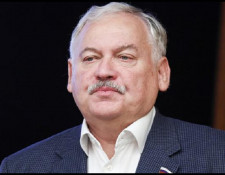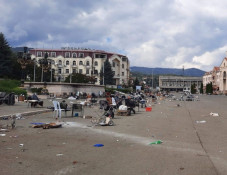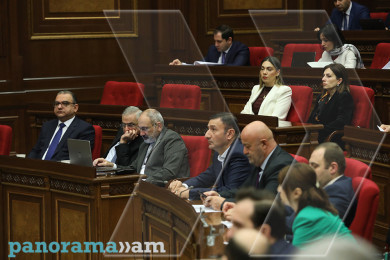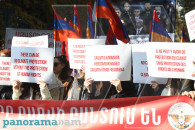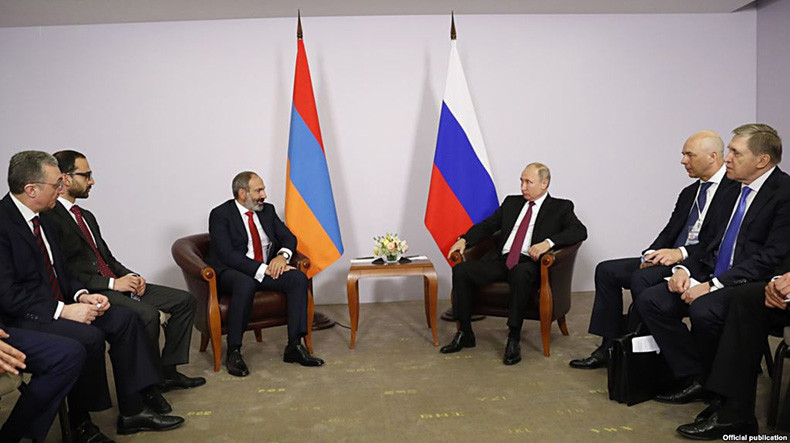
Stratfor: What the chill in Russian-Armenian relations means
Tight ties between Armenia and Russia have long been a mainstay in the Caucasus, but simmering tensions between Yerevan and Moscow could significantly undermine their relationship. The tensions especially threaten Armenia's military ties with Russia, although they could also impact natural gas flows between the countries, American geopolitical intelligence platform and publisher Stratfor said in an article about Armenian-Russia relations titled “What the chill in Russian-Armenian relations means”.
“If the Russian-Armenian relationship continues to fray, other powers, including the United States, Iran and Turkey, could make inroads in the Caucasus country and weaken Russia's position. This, in turn, could force Russia to focus more on bolstering ties with one of Armenia's biggest nemeses, Azerbaijan, raising the prospect of greater instability in the region,” the article says.
Stratfor reminds that Armenia hosts 5,000 Russian troops at the 102nd military base in Gyumri, while Russia wields substantial influence over most of Armenia's strategic economic sectors, from energy pipelines to telecommunications. Armenia is also a member of both the Eurasian Economic Union and the Collective Security Treaty Organization (CSTO).
“Recent political shifts in Armenia, however, have thrown the traditionally strong relationship between Yerevan and Moscow into question – raising the possibility that other powers near and far could step in to fill any breach,” says the publisher.
According to Stratfor, the tensions are a test for the Armenian-Russian alliance. Russia was following the so-called Velvet Revolution – large-scale protests led by opposition leader Nikol Pashinian – which forced long-serving Armenian leader Serzh Sargsyan supported by Moscow to resign in April 2018.
Nevertheless, Moscow did not intervene in Armenia's mass protests, because Pashinian carefully restricted his criticism of the Armenian government to the domestic issue of corruption, while repeatedly emphasizing his support for Yerevan's alignment with Moscow on strategic and security affairs.
“Nonetheless, tensions between the two have grown since Pashinian's rise to power. One reason is his decision to target former Armenian leaders for repressing protests during the 2008 presidential elections. Already, the prime minister has filed criminal charges against former Armenian President Robert Kocharyan and former army chief Yuri Khachaturov. The latter became chief of the Moscow-led CSTO in 2016. But the charges have forced his resignation – angering Russia in the process,” reads the article.
The American publisher notes that tensions have also grown over Russia's military presence in Armenia, citing the snap drills conducted by Russian military forces near the Armenian village of Panik, precipitating protests by residents, as well as the murder of an Armenian woman in Gyumri early last month by a Russian soldier.
“Other security matters have added to the tension between the countries. During a visit to Yerevan in October 2018, U.S. national security adviser John Bolton said the United States would consider the possibility of selling weapons to Armenia, declaring that such a consideration was "fundamental to Armenia exercising its full sovereignty and not being dependent on or subject to excessive foreign influence." The identity of the country alluded to in Bolton's remarks was lost on no one — least of all Russia, which promptly condemned the statement and called on the United States to refrain from interference in its affairs. Pashinian, meanwhile, told Bolton that Yerevan was open to discussing an arms deal.
Naturally, an Armenian-U.S. weapons deal would compromise Russia's monopoly on arms sales to Armenia and force Moscow to rethink its role as Yerevan's security guarantor. Russia plays a key role in protecting Armenia from Azerbaijan over their Nagorno-Karabakh conflict, whose primary arbiter is Moscow. The Kremlin already supplies certain weapons to Azerbaijan, but Russia could certainly ramp up such support if Armenia actually purchased U.S. arms. This, in turn, could lead Azerbaijan to take a more aggressive line over the disputed territory of Nagorno-Karabakh at a time when Russia is more likely to turn a blind eye, given Armenia's perceived disloyalty,” the publisher says.
Stratfor next points to the disagreements brewing in the energy sector, namely the Russian gas price hike for Armenia, agreeing it with the Armenian State Revenue Committee's recent decision to audit Gazprom Armenia.
“These tensions notwithstanding, Pashinian has repeatedly emphasized Armenia's desire to maintain close ties with Russia. In the end, Armenia's continued dependence on Russia for security support and its nonexistent relations with both Azerbaijan and Turkey due to Nagorno-Karabakh means Yerevan is unlikely to make any sudden moves to end its strategic alliance with Russia,” reads the article.
Newsfeed
Videos







